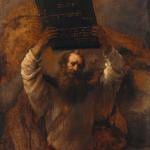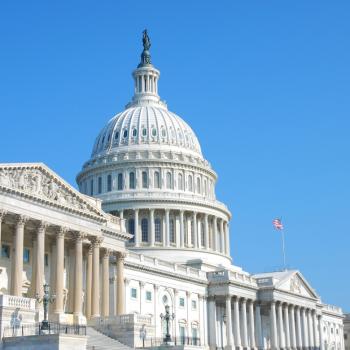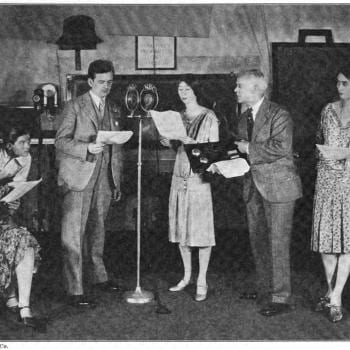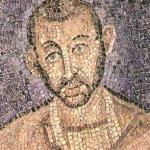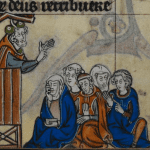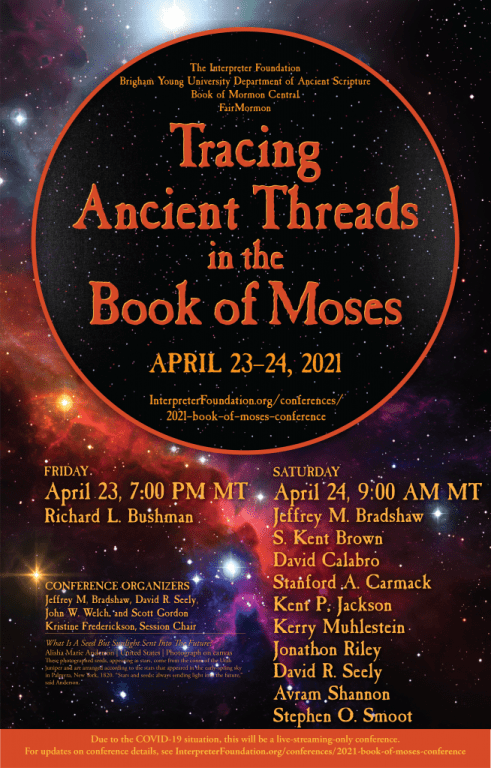
New materials are constantly appearing on the otherwise completely dead and rapidly dying website of the very nearly comatose Interpreter Foundation. Here are two recently posted items:
Hugh Nibley Observed: “Editing Hugh Nibley: The Man and His Legacy,” written by Shirley S. Ricks
“My personal experience of working with Hugh Nibley’s books and manuscripts began in the late 1980s when there was a big push to get several books out in time for the upcoming year when the Book of Mormon would be the focus for our Gospel Doctrine classes. Our family had spent the 1987–88 year in Jerusalem, so other than working on cleaning up a bibliography for Nibley’s dissertation in Ireland (where we spent a couple of summer months on our way home), I probably didn’t do a great deal on Nibley projects until our return to the States. It was around this time that I became more fully engaged in working on the Collected Works of Hugh Nibley.”
Part of our book chapter reprint series, this article originally appeared in Hugh Nibley Observed, edited by Jeffrey M. Bradshaw, Shirley S. Ricks, and Stephen T. Whitlock. For more information, go to https://interpreterfoundation.org/books/hugh-nibley-observed/.
Conference Talks: 2021 Tracing Ancient Threads in the Book of Moses Conference: ““I Am a Son of God”: Moses’ Prophetic Call and Ascent into the Divine Council,” presented by Stephen O. Smoot
Stephen Smoot spoke at the 2021 Tracing Ancient Threads in the Book of Moses Conference on Saturday, April 24, 2021 on “‘I Am a Son of God’: Moses’ Prophetic Call and Ascent into the Divine Council.”
In a landmark 2007 article, the evangelical biblical scholar Michael S. Heiser, writing in a Latter-day Saint academic journal, emphasized that “the divine council is central to a correct understanding of biblical theology, though few have recognized that fact. . . . The interaction on Israel’s divine council needs to continue.” It is significant that a depiction of God’s divine council, or the council in heaven, appears in each book of scripture of The Church of Jesus Christ of Latter-day Saints: the Bible, the Book of Mormon, the Doctrine and Covenants, and the Pearl of Great Price. Shortly before his death, the Prophet Joseph Smith touched on the subject of the divine council in his famous King Follett Discourse delivered on April 7, 1844. “The head God brought forth the Gods in the grand council,” the Prophet taught on that occasion. “The grand counsellors sat in yonder heavens, and contemplated the creation of the worlds that were created at that time.”
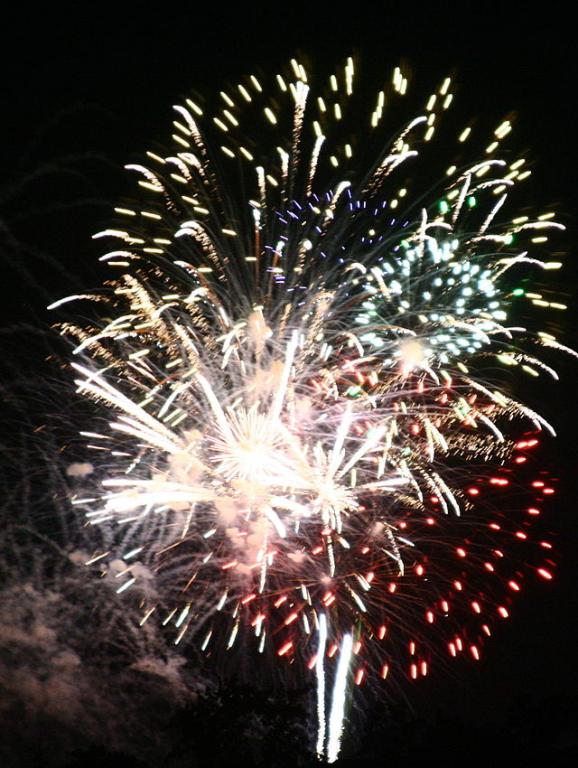
First of all, I want to wish the very happiest Independence Day possible to my American readers. At the same time, I share my condolences on this day with any British readers who might be out there. Otherwise, though, I want to express my hope that everybody, whether American or not, will have a wonderful Fourth of July. (Or, in the case of those in Australia and New Zealand, that they will have had a happy Fourth.)
It is in the spirit of this day, on which we Americans celebrate something of a “civic religion,” that I share a relatively short but thoughtful and perhaps even slightly provocative Christianity Today article by Richard Mouw — a Protestant (indeed Calvinist) theologian whom I greatly admire not only as a thinker but as a person (with whom I’ve had a few direct interactions): “Theocracy Is Not the Enemy of Pluralism: God’s rule is inherently true and doesn’t require that we force it on anyone.”
I also want to share here another Deseret News article from the invaluable Jacob Hess. Not infrequently, I encounter comments from politically-left-leaning secular critics of the Church of Jesus Christ of Latter-day Saints in which they claim, or insinuate, that American members of the Church are uniquely faithful to Mr. Donald Trump because aspects of the doctrine or practices or attitudes associated with the Restoration make them Trumpists by nature. It turns out, though, that the data seem clearly to indicate that American Latter-day Saints are not uniquely devoted to Mr. Trump. Indeed, quite the contrary: As a matter of fact, given their predominantly conservative and Republican proclivities, they appear to be uniquely resistant to Mr. Trump: “‘I just can’t bring myself to support either candidate’: Why so many American Latter-day Saints feel politically homeless: More than ever, people of faith are heading into the U.S. election without any major candidate they can support in good conscience. A deeper dive on why Latter-day Saints seem especially inclined to resist the two major options”
And this, too, is worth a few minutes today — if you can spare them between the fireworks and the barbecues and the pool parties: “Oxygen of Freedom: The Inescapable Christian Influence on American Independence.” Some will like, and some will very much dislike, the author’s reference to “the clown car that is secularism.”

I close with two passages from one of the most interesting of contemporary American writers, Marilynne Robinson, a novelist and essayist who writes from an avowedly Christian perspective that has been deeply influenced by her reading of John Calvin::
“I love the writers of my thousand books. It pleases me to think how astonished old Homer, whoever he was, would be to find his epics on the shelf of such an unimaginable being as myself, in the middle of an unrumored continent. I love the large minority of the writers on my shelves who have struggled with words and thoughts and, by my lights, have lost the struggle. All together they are my community, the creators of the very idea of books, poetry, and extended narratives, and of the amazing human conversation that has taken place across the millennia, through weal and woe, over the heads of interest and utility.” (From When I Was a Child I Read Books)
“Every spirit passing through the world fingers the tangible and mars the mutable, and finally has come to look and not to buy. So shoes are worn and hassocks are sat upon and finally everything is left where it was and the spirit passes on, just as the wind in the orchard picks up the leaves from the ground as if there were no other pleasure in the world but brown leaves, as if it would deck, clothe, flesh itself in flourishes of dusty brown apple leaves, and then drops them all in a heap at the side of the house and goes on.” (From Housekeeping)
Posted from Newport Beach, California



